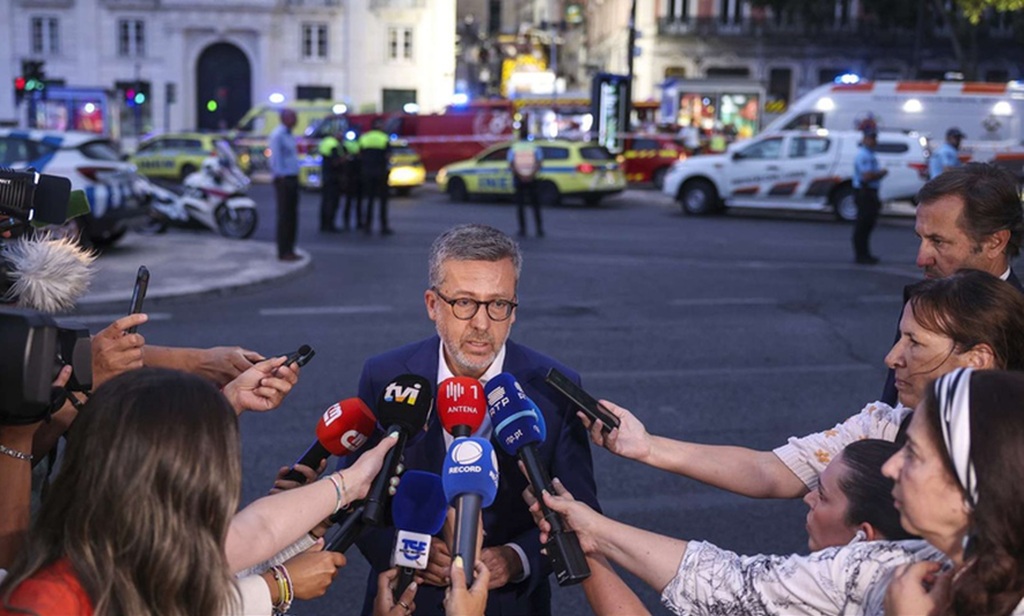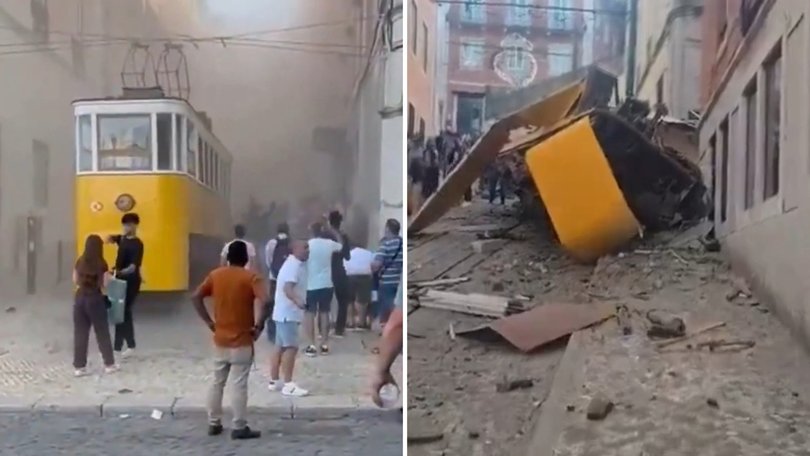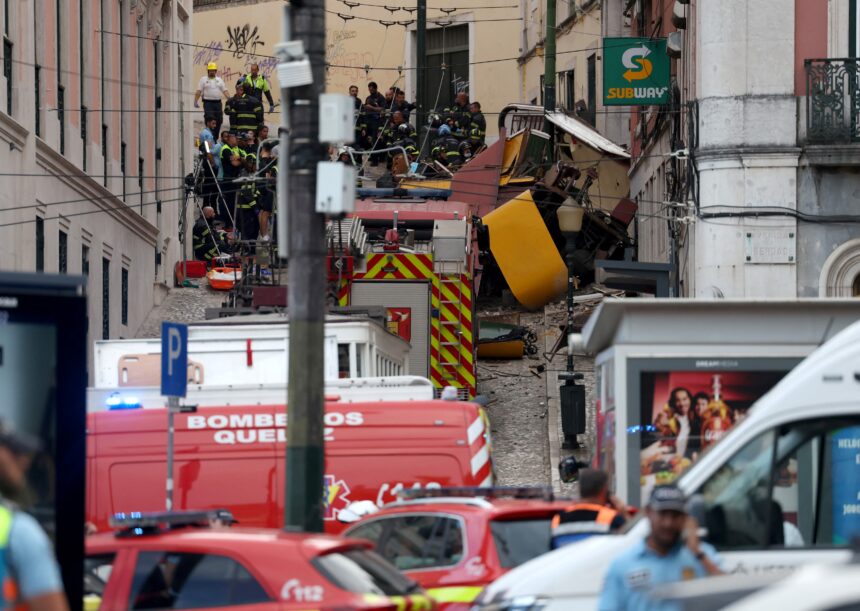LISBON– On Thursday, tragedy struck Lisbon when the well-known Gloria funicular derailed and slammed into a building, killing at least 15 people and injuring 18 more. The crash happened just after 6 p.m. during the busy evening rush hour near Avenida da Liberdade, an area always full of people.
The Gloria funicular was more than just public transport. It linked Restauradores Square in the centre with the lively Bairro Alto neighbourhood, drawing both locals and travellers. Since it opened in 1885 and was electrified in 1915, this iconic yellow-and-white tram has moved over three million people a year. Its steep tracks give riders sweeping city views, making it a favourite for photos and sightseeing.
The system runs on cables, with two cars, each able to carry up to 42 people, balanced against each other and pulled by strong electric motors.
Initial reports point to a cable failure. This may have sent the carriage speeding out of control down the hill until it crashed at a sharp bend. Witnesses described a terrifying scene. Teresa d’Avó told the newspaper Observador that the vehicle was rolling fast, with no brakes to stop it. Nearby crowds panicked, fleeing as the funicular sped past and crashed into a nearby building.
Another witness told SIC television it hit hard and crumpled “like a cardboard box.” Video shared on social media showed one of the carriages flipped over, its roof and sides crushed, with smoke and debris around as people hurried to escape the second carriage. Some jumped out windows to get clear.

Lisbon Mayor Carlos Moedas
Mayor Carlos Moedas met reporters at the site, visibly upset. He called it a terrible day for Lisbon. The city declared three days of mourning, with the mayor offering his condolences to those who lost loved ones.
He promised support to victims and their families, praising the quick response of emergency teams. Prime Minister Luís Montenegro announced a day of national mourning, saying the government was deeply saddened by the event and stood with those affected.
Of the 18 injured, five remain in serious condition, among them a pregnant woman and a three-year-old child, according to local news. Hospitals across the city, including São José and Santa Maria, received injured passengers.
Officials confirmed that foreigners were among the dead, though details about their identities have not been released. Both British and Australian agencies are working with Portuguese authorities, but as of now, no British or Australian citizens have been named among the victims.
Tourists fill Lisbon’s hills in the warmer months, and many expressed deep shock. Paolo Valério, a security guard who saw what happened, told The New York Times the tragedy would leave its mark for years and create new fears.

A Terrible Day for Lisbon
A British traveller told The Independent that he had ridden the Gloria only the day before. He said it was difficult to imagine something so beloved turning deadly. The accident has brought fresh questions about the safety of Lisbon’s historic trams, a major draw for tourists.
Carris, the company that runs the funicular, said all proper maintenance was up to date. This included regular daily checks, monthly routines, and repairs as recently as 2024. Still, officials have launched a full investigation into what exactly caused the derailment.
The police and public prosecutor are working together on the case, which is standard for serious transport incidents. Fernando Nunes da Silva, an expert in transport and former city official, told SIC Notícias that the accident most likely started when the cable snapped, leaving the carriage without brakes.
European leaders also expressed their condolences. Ursula von der Leyen, the President of the European Commission, posted a message in Portuguese sharing her sadness over the loss. Spain’s Prime Minister Pedro Sánchez called it a “terrible accident,” while Italy’s Foreign Minister Antonio Tajani sent his support to Portuguese authorities and the families of those affected.
Emergency responders worked into the night, freeing everyone trapped within two hours. By 9 p.m., forensic teams and investigators were on site, gathering evidence as the area remained sealed off. City council has shut down Lisbon’s other funicular lines and ordered immediate inspections to check for any safety issues.
Lisbon has always been known for its centuries-old streets and friendly spirit. Now, the Gloria funicular stands as a solemn reminder that even the safest traditions can be fragile. The city will remember this tragedy for a long time, as both officials and citizens look for answers and hope for healing.














